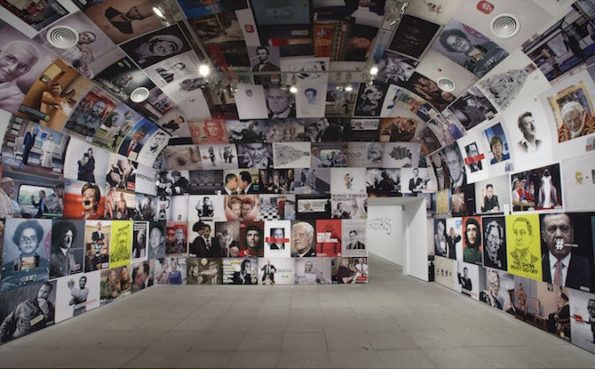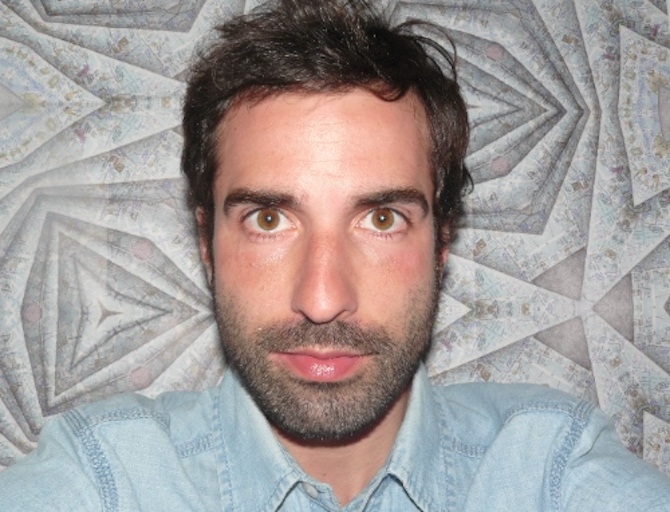Search
To search for an exact match, type the word or phrase you want in quotation marks.
A*DESK has been offering since 2002 contents about criticism and contemporary art. A*DESK has become consolidated thanks to all those who have believed in the project, all those who have followed us, debating, participating and collaborating. Many people have collaborated with A*DESK, and continue to do so. Their efforts, knowledge and belief in the project are what make it grow internationally. At A*DESK we have also generated work for over one hundred professionals in culture, from small collaborations with reviews and classes, to more prolonged and intense collaborations.
At A*DESK we believe in the need for free and universal access to culture and knowledge. We want to carry on being independent, remaining open to more ideas and opinions. If you believe in A*DESK, we need your backing to be able to continue. You can now participate in the project by supporting it. You can choose how much you want to contribute to the project.
You can decide how much you want to bring to the project.

The first solo exhibition of the year at the Museo Nacional Centro de Arte Reina Sofía is “ Operating System”, by Daniel García Andújar. A large selection of earlier works is being shown alongside new creations that continue to explore the link between new technologies and society, intervening between the public and the private. We talk with an artist who considers his work to be more collective than individual.
Your exhibition could also have been called “Inoperative system”.
In fact I’m into these analogies, very black or white. I make a lot of references, as happened in “Postcapital”, where I reduced language to colours, something symbolic but that is still there as part of the artistic language. In the artist’s toolbox there are all the languages used during the history of art, it would be absurd not to use them. I make an almost reductive use in this type of analogy, in this case of red, white and black. I make these analogies, as in operating system, in order to establish parallels with the political system. In line with the language of hacking, there is an endeavour to seek out the failures of the system, through the bug, and once on the inside to improve or repair it; this search is for a more democratic system, for a much more horizontal system.
Through the hole opened up by the bug enters exploit, the programme that can be damaging or beneficial.
I work with this idea, in fact I always explain the paradox of the knife: If we film a scene with a close up, a certain type of lighting, use certain dramatic recourses of film and a knife appears, we think one thing. But if later a hand and Ferran Adrià appear, we’ll be talking about cooking. Depending on how we use them, tools have one result or another. I’m in favour of a greater transparency and emancipation, and that what be criminalized be a bad use of this information. But they are criminalising or supervising us a priori, and don’t let us function as an emancipated society.
You mentioned there are errors in the system. Do you think the way to solve them is through the participation of society?
Undoubtedly. When I began to develop these operating systems and software, I talked about an emancipated citizen in this sense. If instead of society as a shapeless mass we have individuals who are trained, with a good stock of educational and pedagogical culture, we’d have a better society. Here I draw a parallel with the Spanish empire of Philip II, when thanks to the printing press, the word, in this case of God, the Bible, begins to be disseminated. There is a wider access to certain information and its interpretation. It’s there the developments began that led to the French Revolution, that first great emancipation of the bourgeoisie. I make an analogy with this huge divide that is currently forming, that ultimately is like a new social hierarchy, what in the 90’s was called info-rich and info-poor. The digital divide is growing increasingly wider, adding to a divide that was already there.
In titling the exhibition “Operating System” instead of “Inoperative” I see a tendency to be optimistic rather than pessimistic, towards the idea that access to technology can prove changes in favour…
In favour and also against. I have always said that neither the educational system nor training on a global level are prepared to confront this divide and this system that is by definition a system of control. When people chucked a mobile in their pocket they didn’t understand they were also putting in a system by which they would be controlled 24 hours a day, 365 days a year. A generation like mine, very possessive of their privacy, doesn’t understand living in this glass tower that is totally transparent, this flat earth society as liberals like Friedman call it. We are living in a world that has become flat; there are no mountains and nowhere to hide, this is evidently a radical change. I say we are in a process of digitalization that is not yet over. What there is now is a lot of questions on the table. This for an artist is fascinating.
Would you define your work as individual or does it have something of the collective as well?
It’s somewhat collective. One of the transformations beginning to take place is seeing institutions as something relative, as something moveable. Talking about the Museum, for example, I believe there is a difference between artists from the 70’s – from whom I learnt a lot – who maintained a confrontation with the institution and those of my generation. Who in principle, for example with all the works being done on the Internet, simply passed the institution by because we didn’t need it to promote our work, and we began to have a certain interest in transforming the institution.
In the middle of the 90s there was a lot of talk of interactivity, I participated in lots of festivals and got fed up; at the end of the 90s I got out of all this festivalitis, the world of the internet, the maquinitis, all that stuff. There was a lot of talk of virtuality, when the virtual networks are as real as they are physical. And of, this amuses me, interactivity. When you pressed a button and something on the screen moved it was interactive. And it’s the least interactive there is because you have programmed it and know exactly what is going to happen in a machine that has been defined, it is a structure I have created. I understand the artistic experience as part of a much broader cultural structure. I understand that I’m no longer talking about a static public. What I do is show the structure, and from there a much more interesting level of participation is created. And it has a certain functionality. If we think about how to access the internal code of specific structures, when we see an advert of a man in underpants, for example, it’s not just selling us underwear, but also a style, a tendency, an ideology. The trends, that are formed and manipulated, are absorbed immediately by kids; in fact, if you don’t form part of this trend you’ve had it. Information technologies are carrying us to a much more reduced space and this isn’t just the fault of the internet. Travelling from London to Barcelona is ten times cheaper than from Barcelona to Cáceres. The planet has shrunk and this has left masses of people without the capacity for visibility or to participate. We are pursuing an increasingly standardised world where the other, lo otro, has no possibility to develop his project.

His intention is to continue to improve his writing of art criticism; everything else is enjoying and learning from contemporary proposals, establishing other strategies of relations, either as a contributor to magazines, editor of a review, curator or lecturer. As a backpacking art critic, he has shared moments with artists from Central America, Mexico and Chile. And the list will continue. Combating self-interested art, applauding interesting art.
"A desk is a dangerous place from which to watch the world" (John Le Carré)